Attention: You are using an outdated browser, device or you do not have the latest version of JavaScript downloaded and so this website may not work as expected. Please download the latest software or switch device to avoid further issues.
| 6 Jun 2023 | |
| Written by Julian Wilde | |
| For OBs from OBs |

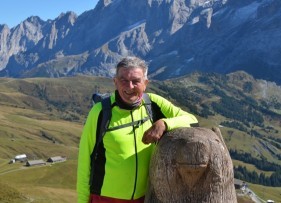
Moving from northern small-town Blackburn in 1956 to what seemed like the metropolis of Bristol, as my father took up a new post as Regional Standards Officer for the Electricity Generating Board, was a challenge and a profound change for me at the age of 11.
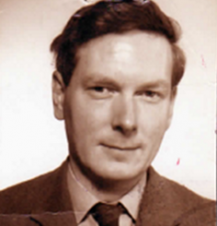
Roy Avery asked me to captain the Under 12 cricket team and I played and coached Saturday and Sunday for the next 36 years, revelling in the interweaving of eleven individuals joining together in a complicated team game.
Stanley Martin who cycled to school in his college scarf and white plimsolls enthused me about Latin and Greek in 4 Classical, housed in the redundant and quaint redundant sports pavilion overlooking Tyndall’s Park.
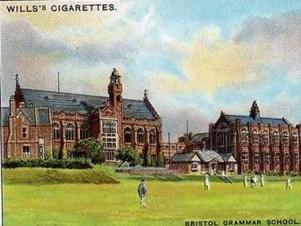
Remarkably Gordon MacMillan, my form master in Remove Classical and the epitome of strictness and good order, went along with my unheard-of initiative to set up and run a magazine library with everyone in the form contributing a few pence a week.
The following year, as form captain in John Radford’s 5 Classical, I learned to employ a variety of methods to get all my form-mates onside and agree to stop torturing the trainee teacher who took us for Greek. Persuading, cajoling, pleading, threatening, shaming and joshing – I used them all.
I was too small and slight for rugby, but my enthusiasm for football (especially Blackburn Rovers, with the dashing Ronnie Clayton and the wizard of dribble Bryan Douglas), together with my nimbleness, were cleverly harnessed by Michael Booker. “Try it”, he said. I immediately loved being a goalkeeper at hockey, a game I continued to play for 25 years, captaining the School, my Oxford college and my Manchester club.
In the Sixth Form, at the third attempt and following the departure of the luminary Robert Lacey, I managed to win the annual public speaking competition, an experience which gave me a confidence I valued throughout my career as a teacher.
I spoke as an American explaining the game of cricket to his fellow Americans - a left-field humorous approach which stood me in good stead later in the Headship of two schools, usually considered a formal and serious role.
Through all these varied experiences my time at Bristol Grammar School was enriching and significant, making me what I am.
Yet it was the four summer holiday school trips to Europe, led by Tony Warren, which had the most profound effect.
The first was to Konigssee in Bavaria in the summer of 1958, a holiday which began with 24 hours on the train to Munich.
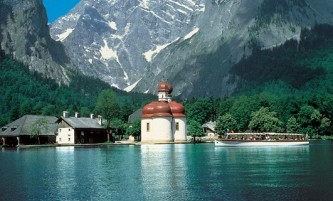
Our hotel base by the lake, not far from Hitler’s “Eagle’s Nest” high above Berchtesgaden, was newly opened and here an unanticipated excitement was possible cherry brandy and, as the Chronicle rather surprisingly records, a party of English schoolgirls.
I left my Box Brownie Camera on a wall at Salzburg Castle and found it again 30 minutes later. I felt like death as we got up at 3 am to go by coach to the Grossglockner Glacier. I loved the salt mines where we whizzed down long steep wooden slides, with no thoughts whatsoever of health, or safety. I came home hooked on travel.
Next year a Swiss trip to Aeschi, a rural village above Lake Thun in the Bernese Oberland, was even more memorable, as the grandeur of the Swiss Alps simply entranced me. We came to a halt in a snowstorm on an exposed chairlift from Beatenberg to the summit of the Niederhorn - what an adventure! We were shocked, whilst mistakenly walking up a waterfall, when Tony Warren remarked that our situation was “bloody dangerous”.

Tony Warren, with his correctness of speech, copperplate handwriting and precise organisation, personally arranged in minute detail our train travel, hotel and meals, our day excursions to Lucerne, to Montreux and to Kandersteg’s Blue Lake – it was our very own tailor-made package tour.
My third trip under Tony Warren’s leadership was a walking week in the Black Forest in Germany, made demanding by a heatwave. This time we stayed in youth hostels and were indebted to the amiable languages’ teacher, John Morris, who negotiated with the hostel wardens in German, a language foreign to Tony. A highlight was going up the narrow steps of the cathedral tower at Freiburg – on the outside not the inside – which took the breath away in several senses.
The Black Forest’s rolling hills were fine, but the Alps were now in my sou
Even more of a surprise came when Tony asked me to write to the youth hostels and make the bookings. Eventually, not long before the end of the summer term in 1962, small brown handwritten postcards arrived back from the wardens of the hostels, the only confirmation we had for our eight-day trip.
It was gruelling. We each carried our world on our back. We started by sleeping in a barn with bunks in Wilderswil, then up to Murren where we had the novelty of muesli for breakfast, then down to Lauterbrunnen and steeply up to Wengen. Next day it was up again to the pass at Kleine Scheidegg, a balcony onto the North Face of the Eiger, and then down to glorious Grindelwald.

“What is Mr. Warren doing there on the ground?” we wondered, as we came round a corner ready to be photographed by Tony who had gone on ahead. A severely sprained ankle was the verdict at the hospital at Engelberg after we had virtually carried Tony who could barely hobble - a sobering and unexpected end to our trek.
I was well aware at the time of other outstanding staff at BGS whom I personally came across less. Their commitment and enthusiasms, in and out of the classroom, influenced my fellow students, each in their own sphere. Notable examples include Ken Lyon (Michael Payne, England swimmer), David Trott (Colin McFadyean, England Rugby captain and British Lion), Frank Beecroft (Norman Eshley, actor) and William Wynne-Wilson (Colin Luke, filmmaker).
Readers of these lines will each have reason to remember a particular member of the school’s dedicated staff who, each in their characteristic style, expected the highest standards of academic work and behaviour from us. Maurice Isaac, Michael Buffery, Vincent Waite, Fred Perry, Eric Dehn, Derek Lucas, Herbert Payne, “Fish” Dyson and Neville Osborne spring to my mind, but there were many others.
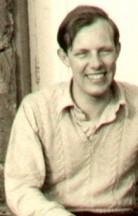
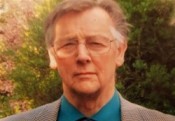
Head of Classics, Courtney Langford, in his domain in Norwood’s, was learned, kindly and easy for us to mimic mercilessly, but he conveyed to us vividly his love of the ancient world. I was glad to be part of his Classical Sixth and to win an open scholarship to Oxford University.
It was only later in life that I came to realise, particularly from my 20 years as a Headmaster, that, as schoolboys, we think we know everything about our teachers. Actually, we know very little. Their personal and family lives, their health, their reputation, standing and relationships within the staff room, their ambitions and rivalries are largely a closed book to their charges.
I can remember that the boys at BGS were utterly astonished when Michael Booker announced that he was getting married and similarly, as Leslie Meigh’s house captain, I was amazed to learn he would be moving to a new job, leaving BGS at the same time as I moved to university.
It is with that caveat, therefore, that I have been writing these notes and thinking about the BGS motto “Ex spinis uvas” meaning “from the thorns, grapes”, a play on the names of the founders of the school Robert and Nicholas Thorne.
We might see the teaching staff , then and now, as those who toil and tend the vines which produce the grapes – work which above all else requires commitment and time. For me it was Tony Warren who was the significant one amongst those working in that Bristol vineyard.
Tony Warren’s time and total commitment to Bristol Grammar School over a lifetime of service have been exemplary – as form-master, trip organiser, Housemaster, geographer, organiser, with Derek Lucas, of the Field Club, Second Master, Governor. His interest in all things BGS has continued unabated since his retirement in 1988. The sports pavilion may be long gone, but the quality of the School endures.
It has been my pleasure during the pandemic to have expanded my once-a-year Christmas card to Tony into a regular series of phone calls. He is now over 90 and I salute his consistent cheerfulness, sense of humour and interest in me sixty years on, just the same qualities I appreciated at our first meeting in September 1956.
To view this news article